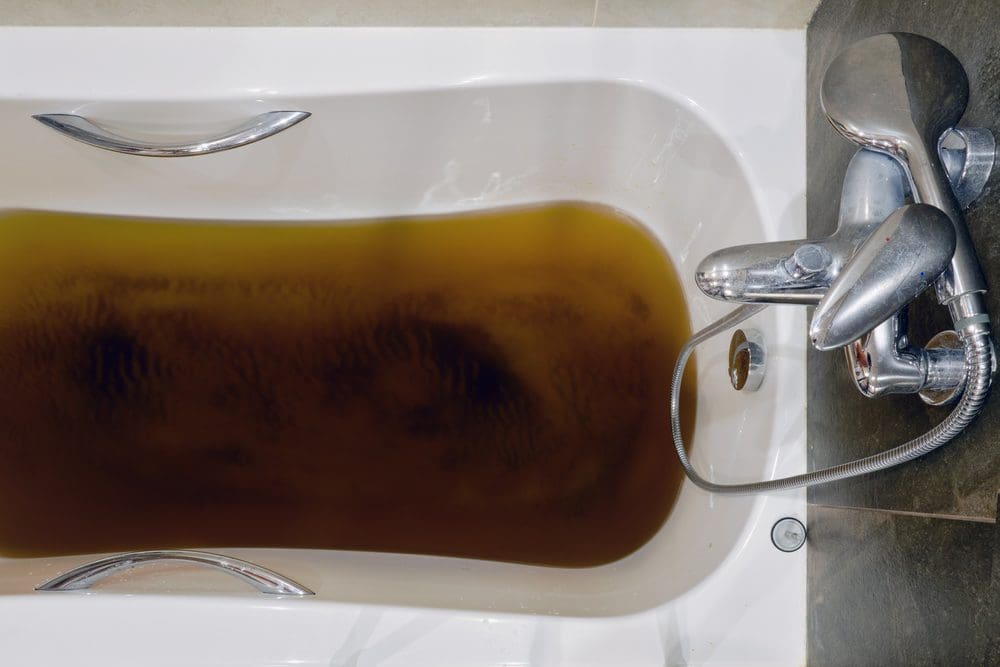An Comprehensive Guide: Effluent Rising Through the Bathtub
An Comprehensive Guide: Effluent Rising Through the Bathtub
Blog Article
This post directly below on the subject of What to Do if Sewage Starts Coming Up Through Your Bathtub is really captivating. Check it out yourself and see what you think of it.

Sewer backup in the bathtub can be a stressful and unsanitary trouble for any homeowner. Not just is it troublesome, but it likewise positions significant health risks and indicates underlying issues with the plumbing system. Comprehending why sewer is coming up via the bath tub is vital for taking proper activity to deal with the trouble successfully.
Intro to the Concern
Understanding the Problem
When sewage draws back up right into the bath tub, it's a clear indicator of a problem with the drain system. The wastewater that needs to be moving away from your home is rather locating its way back right into your home, which can cause substantial damage and health hazards.
Potential Reasons
Several aspects can contribute to sewer back-up in the bathtub. From obstructions in the sewage system line to concerns with the plumbing infrastructure, recognizing the root cause is essential for finding an option.
Typical Factors for Sewage Back-up
Blockages in the Drain Line
Among one of the most usual reasons for sewage backup is a clog in the sewer line. This can take place because of the build-up of debris, grease, or international things in the pipelines, stopping correct flow and creating sewer to back up into your bathtub.
Tree Root Breach
Tree roots looking for wetness and nutrients can infiltrate sewage system lines through little cracks or joints. Gradually, these roots can expand and increase, creating considerable damages to the pipelines and leading to sewer backup concerns.
Aging Framework
Older homes may have dated plumbing systems that are a lot more susceptible to deterioration, splits, and damage. As pipes age, they come to be much more prone to leakages and clogs, raising the probability of sewer backup occurrences.
Heavy Rainfall or Flooding
During periods of heavy rainfall or flooding, the drain system may become overloaded with excess water, causing back-ups and overflows. This can result in sewer supporting right into bath tubs and other components inside the home.
Wellness Threats Related To Sewage Backup
Contamination of Water
Sewage back-up can pollute the water system in your house, posturing a major health risk to you and your family. Exposure to infected water can result in gastrointestinal issues, skin infections, and various other diseases.
Spread of Disease
Sewer has hazardous microorganisms, infections, and parasites that can trigger a variety of conditions, including hepatitis, cholera, and gastroenteritis. Entering contact with sewage or contaminated surface areas puts you at risk of infection.
Mold and mildew Development
Dampness from sewer backup can create excellent problems for mold growth in your home. Mold spores can exacerbate respiratory problems and cause allergic reactions in sensitive people, making punctual clean-up vital.
Indications of Sewer Backup
Foul Odors
Undesirable smells rising from drains pipes or fixtures, particularly in the restroom, may suggest sewage backup concerns. These odors are often strong and consistent, indicating a problem that needs prompt interest.
Slow Draining Fixtures
Bathtubs, sinks, and bathrooms that drain pipes gradually or otherwise in all could be experiencing sewer backup. If several fixtures are affected at the same time, it's most likely that the concern stems from a common factor, such as the main drain line.
Gurgling Sounds
Weird gurgling or bubbling noises originating from drains when water is running in other places in the house are a sign of air trapped in the plumbing system. This air accumulation can result from sewer back-up and need to be explored promptly.
Immediate Actions to Take
Shutting Off Water
In case of sewer backup, it's important to shut off the water to prevent further contamination and damages. Find the primary water shutoff valve in your house and shut it off until the concern can be resolved.
Speaking To an Expert Plumber
Handling sewage back-up is not a do it yourself job. Call a licensed plumber with experience in dealing with sewage-related concerns to assess the scenario and execute necessary repair work or cleanups.
Avoiding Contact with Infected Water
Up until the sewage back-up is fixed, stay clear of contact with contaminated water to prevent the spread of bacteria and microorganisms. Put on protective equipment if you need to remain in the afflicted location and wash your hands extensively later.
Safety nets
Normal Maintenance of Drain Lines
Schedule normal inspections and maintenance of your sewage system lines to recognize and attend to prospective issues before they escalate into major issues. This can include cleaning particles, checking for tree origin breach, and repairing any type of damaged pipelines.
Setting Up Bayou Valves
Take into consideration mounting bayou shutoffs in your plumbing system to prevent sewage from receding right into your home throughout durations of heavy rainfall or flooding. These shutoffs automatically close when water draws back up, safeguarding your property from contamination.
Proper Disposal of Household Waste
Prevent purging anything besides bathroom tissue and human waste down the bathroom to avoid blockages and obstructions in the drain line. Dispose of oil, oil, and other household chemicals effectively to decrease the risk of plumbing problems.
Cleaning Up After Sewage Back-up
Disinfection Procedures
Completely disinfect and sterilize influenced areas after sewage backup to eliminate unsafe germs and stop mold and mildew growth. Usage proper cleansing items and protective equipment to make sure secure and effective cleanup.
Reconstruction of Impacted Locations
Repair any kind of damage to flooring, walls, or fixtures brought on by sewer back-up. Relying on the extent of the damage, you might require to replace carpeting, drywall, or other products to recover your home to its pre-loss problem.
Why Is Water Backing Up in My Bathtub When I Flush My Toilet?
What to do about a sewer line clog
First, don’t bother with plunging. No amount of plunging will dislodge the clog in a sewer line. The clog is too far away. Plungers are for clogs in the toilet itself, not the sewer line. Plus, the most likely causes of a sewer clog are:
Tree roots Flushed toys or feminine products Grease buildup Those items don’t move easily. And in the case of tree roots, the roots need to be cut out of the pipe and the pipe will need to be repaired.
You’ll need a closet auger. A closet auger is a type of plumber’s snake with a protective cover to keep from scratching the delicate porcelain toilet. If the clog is further down, you may need to remove the toilet or use one of your cleanouts to get to the clog.
We also recommend doing a video inspection of the drain to ensure that the cause of the clog has been completely removed. Otherwise, you could have the same problem again in a few days or weeks.
https://mspplumbingheatingair.com/blog/why-is-water-backing-up-in-my-bathtub-when-i-flush-my-toilet

As a person who reads about What to Do if Sewage Starts Coming Up Through Your Bathtub, I was thinking sharing that article post was sensible. Sharing is caring. You just don't know, you may just be helping someone out. I praise you for being here. Kindly check up our site back soon.
Recurring Service Plans
Report this page